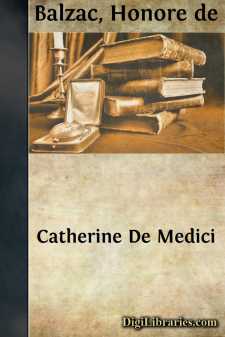Categories
- Antiques & Collectibles 13
- Architecture 36
- Art 48
- Bibles 22
- Biography & Autobiography 813
- Body, Mind & Spirit 142
- Business & Economics 28
- Children's Books 17
- Children's Fiction 14
- Computers 4
- Cooking 94
- Crafts & Hobbies 4
- Drama 346
- Education 46
- Family & Relationships 57
- Fiction 11829
- Games 19
- Gardening 17
- Health & Fitness 34
- History 1377
- House & Home 1
- Humor 147
- Juvenile Fiction 1873
- Juvenile Nonfiction 202
- Language Arts & Disciplines 88
- Law 16
- Literary Collections 686
- Literary Criticism 179
- Mathematics 13
- Medical 41
- Music 40
- Nature 179
- Non-Classifiable 1768
- Performing Arts 7
- Periodicals 1453
- Philosophy 64
- Photography 2
- Poetry 896
- Political Science 203
- Psychology 42
- Reference 154
- Religion 513
- Science 126
- Self-Help 84
- Social Science 81
- Sports & Recreation 34
- Study Aids 3
- Technology & Engineering 59
- Transportation 23
- Travel 463
- True Crime 29
Sort by:
Pleasant is a rainy winter's day, within doors! The best study for such a day, or the best amusement,âcall it which you will,âis a book of travels, describing scenes the most unlike that sombre one, which is mistily presented through the windows. I have experienced, that fancy is then most successful in imparting distinct shapes and vivid colors to the objects which the author has spread...
more...
by:
Joseph A. Seiss
LUTHER AND THE REFORMATION. A rare spectacle has been spreading itself before the face of heaven during these last months. Millions of people, of many nations and languages, on both sides of the ocean, simultaneously engaged in celebrating the birth of a mere man, four hundred years after he was born, is an unwonted scene in our world. Unprompted by any voice of authority, unconstrained by any...
more...
"Well, sir," said Mr. Dooley, "I see they've been holdin' a Divoorce Congress." "What's that?" asked Mr. Hennessy. "Ye wudden't know," said Mr. Dooley. "Divoorce is th' on'y luxury supplied be th' law that we don't injye in Ar-rchey Road. Up here whin a marrid couple get to th' pint where 'tis impossible f'r thim...
more...
by:
Thomas Carlyle
Chapter I.—SANS-SOUCI. Friedrich has now climbed the heights, and sees himself on the upper table-land of Victory and Success; his desperate life-and-death struggles triumphantly ended. What may be ahead, nobody knows; but here is fair outlook that his enemies and Austria itself have had enough of him. No wringing of his Silesia from this "bad Man." Not to be overset, this one, by never such...
more...
PREFACE. A readable book should instruct, entertain and amuse. The author, outside of the historical interest of this little book, has aimed to cover a broad-enough field for all classes of readers to find some nourishing food—at least in the way of variety and shifting scenes—from the standpoint of a young private. And in order to understand his viewpoint, a brief sketch of the author is...
more...
by:
Mark Twain
Chapter I. The birth of the Prince and the Pauper. In the ancient city of London, on a certain autumn day in the second quarter of the sixteenth century, a boy was born to a poor family of the name of Canty, who did not want him. On the same day another English child was born to a rich family of the name of Tudor, who did want him. All England wanted him too. England had so longed for him, and...
more...
by:
John Wesley Judd
CHAPTER I INTRODUCTORY When the history of the Nineteenth Century—'the Wonderful Century,' as it has, not inaptly, been called—comes to be written, a foremost place must be assigned to that great movement by which evolution has become the dominant factor in scientific progress, while its influence has been felt in every sphere of human speculation and effort. At the beginning of the...
more...
by:
Honore de Balzac
INTRODUCTION There is a general cry of paradox when scholars, struck by some historical error, attempt to correct it; but, for whoever studies modern history to its depths, it is plain that historians are privileged liars, who lend their pen to popular beliefs precisely as the newspapers of the day, or most of them, express the opinions of their readers. Historical independence has shown itself much...
more...
by:
Various
A FIRST VISIT TO THE "NAVERIES." "Shiver my timbers!" said the Scribe. "Haul down my yard-arm with a marling-spike!" cried the Artist. And with these strictly nautical expressions, two of Mr. Punch's Own entered the Royal Naval Exhibition, which now occupies the larger portion of the grounds of the Military Hospital, Chelsea. That so popular a show should be allowed to...
more...
by:
Andre Norton
Lotus World There was a shading of rose in the pearl arch of sky, deepening at the horizon meeting of sea and air in a rainbow tint of cloud. The lazy swells of the ocean held the same soft color, darkened with crimson veins where spirals of weed drifted. A rose world bathed in soft sunlight, knowing only gentle winds, peace, and—sloth. Ross Murdock leaned forward over the edge of the rock ledge to...
more...











